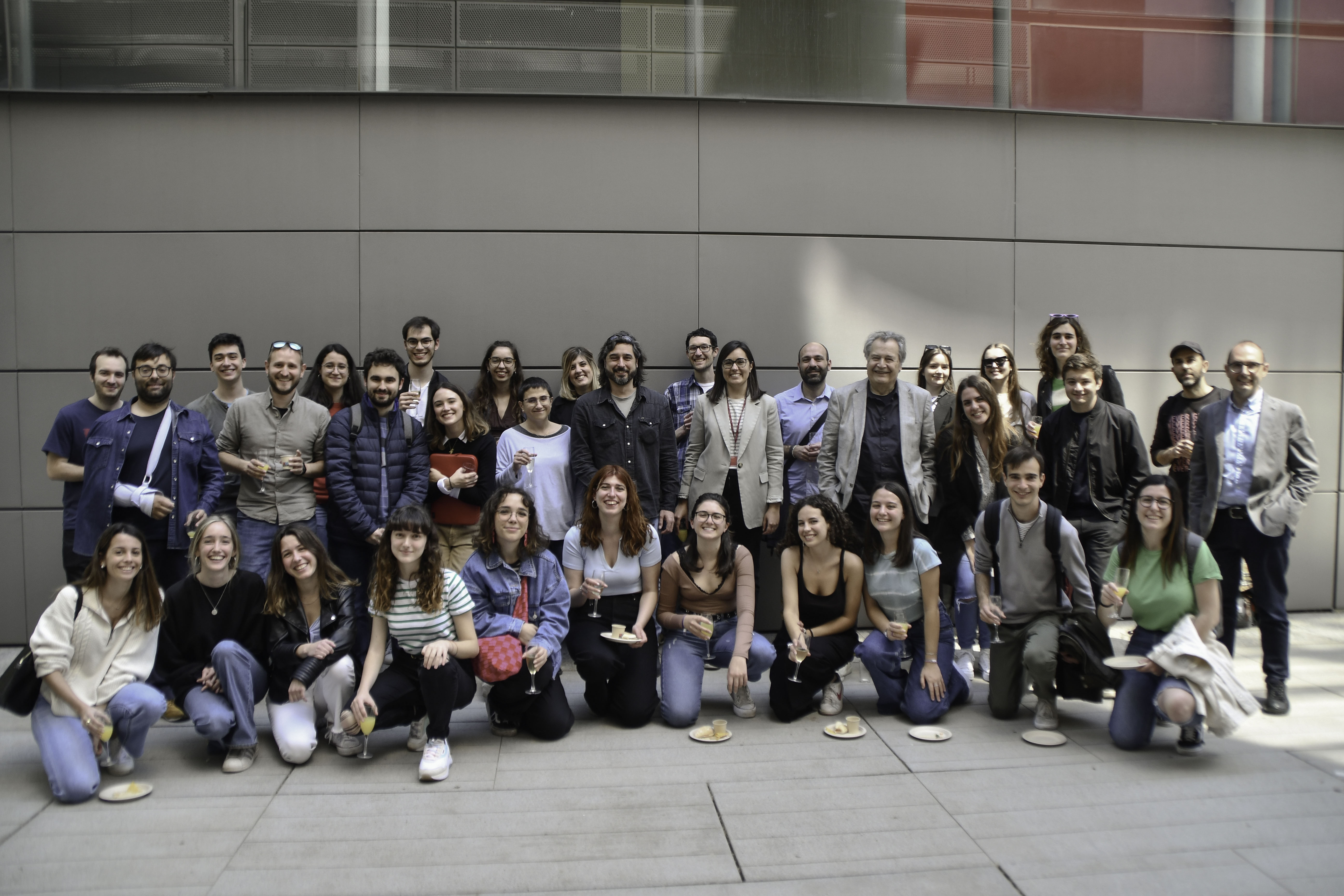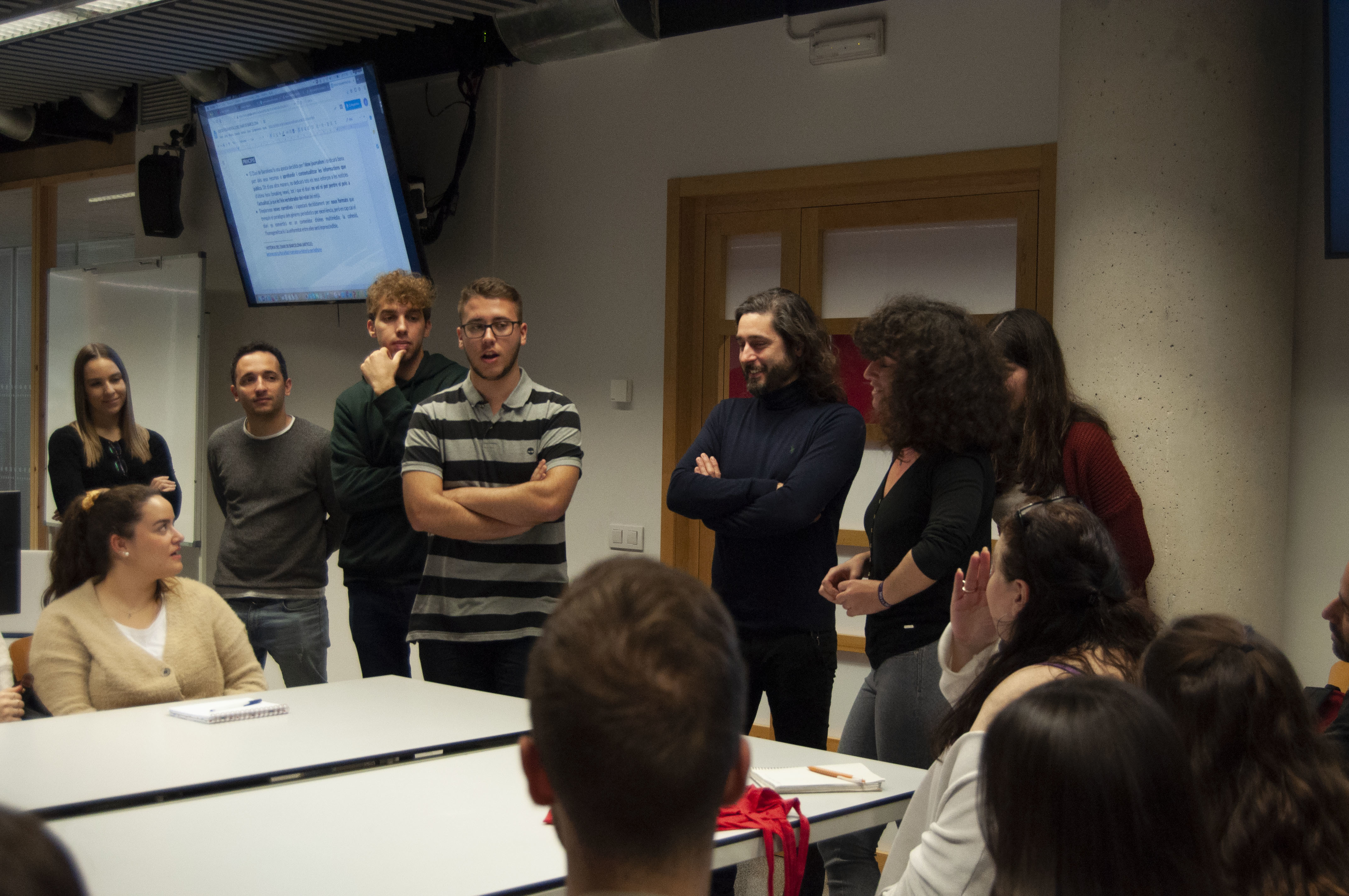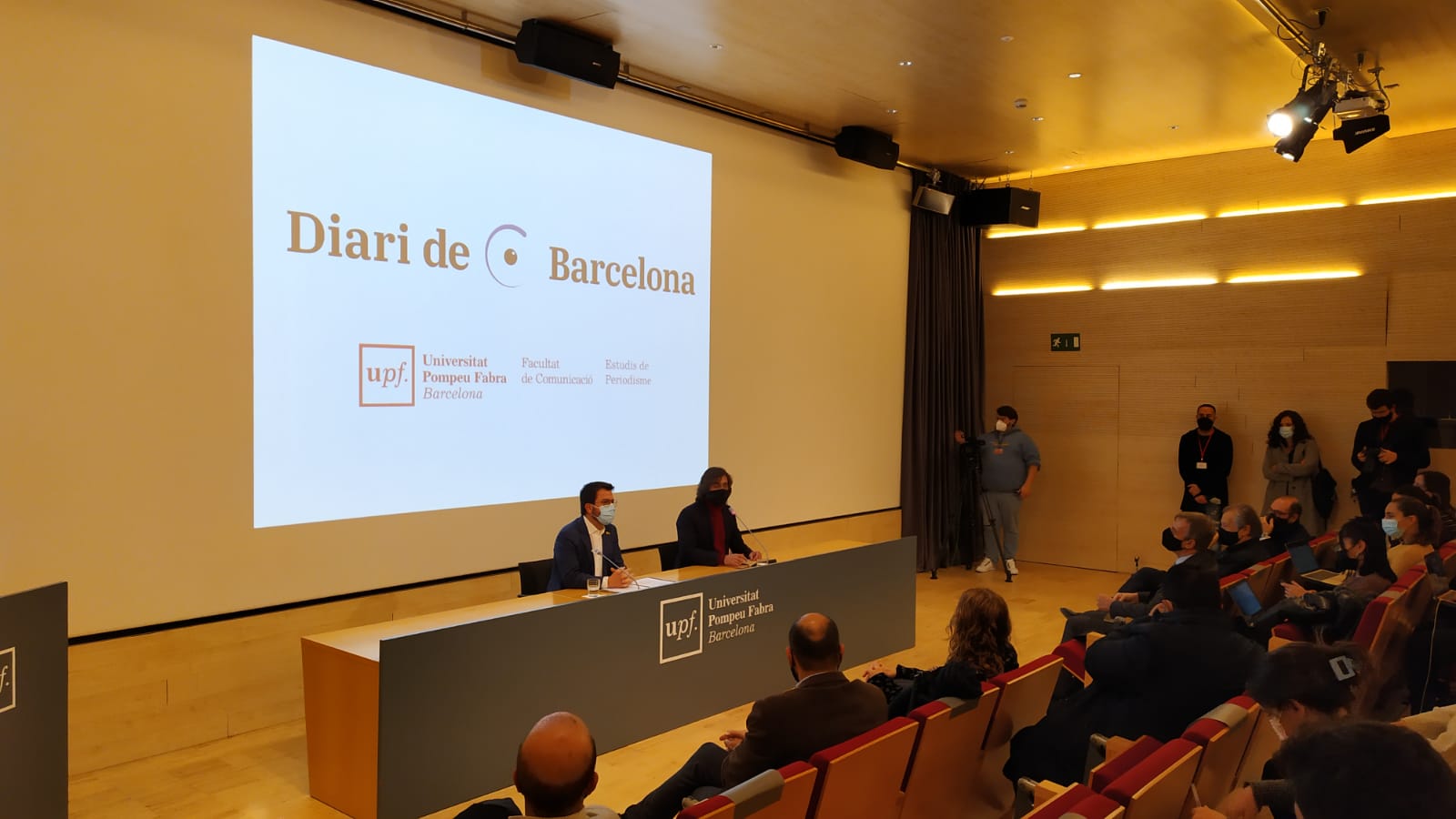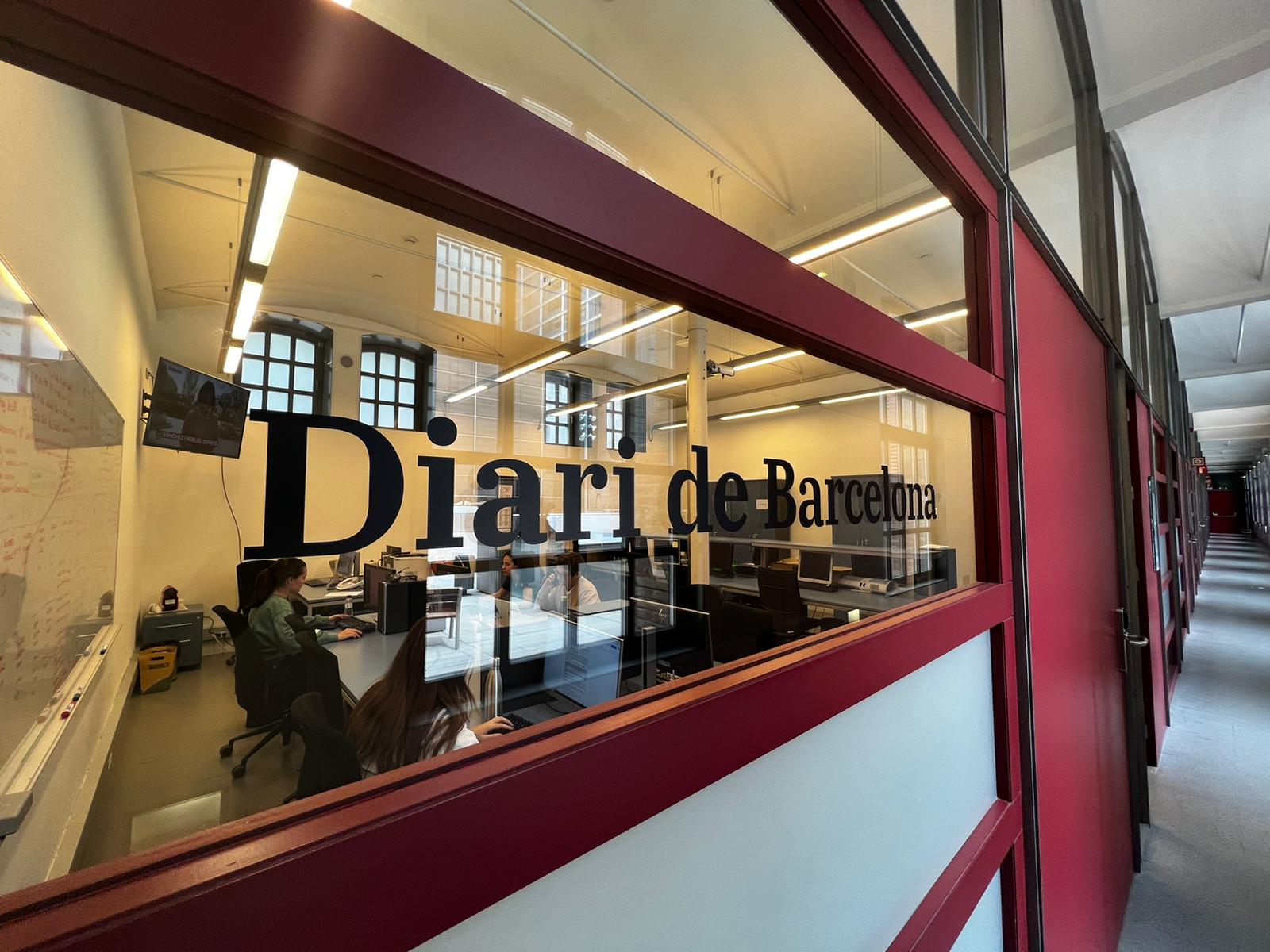‘Diari de Barcelona’ turns two
‘Diari de Barcelona’ turns two
During its two years of life, two generations of students have spent time at the Diari, a core project of the Faculty of Communication that has undergone numerous changes and has become established.

The Diari de Barcelona newspaper, the communication medium of the Faculty of Communication, has turned two. The digital medium was born on 30 April 2020, among a group of students of the bachelor’s degrees in Journalism, Audiovisual Communication, Advertising and Public Relations, and Translation and Interpreting, with the aim of offering the perspective “of a committed generation”. Two years later, two generations of students have already passed through the newspaper.
The Diari de Barcelona is mainly produced by students on the bachelor's degree in Journalism, but it also involves students from the other programmes of the faculties of Communication and Translation and Language Sciences. Since its inception, the medium has been committed to rigorous journalism with innovative formats, and to being a space where students can express themselves and experiment with new journalistic formats.
Roger Cassany, one of the coordinators of the Diari, together with Anna Pacheco, David Meseguer and Andrés González-Nandín, explains that the Diari “is a space where students can express themselves, not about things we understand as young people; rather about general issues. It is a space where the voice of the writers and, therefore, of people aged between 20 and 25, can be heard how they want to be heard”.
Cassany adds that the paper arose as “a risky project, a pipe dream, but now it has become well established. The Diari has created a universe where, in addition to people who want to do so can find information there, a whole generation of users and readers can feel quite at home”, he concludes.
Roger Cassany: “The Diari has created a universe where, in addition to people who want to do so can find information there, a whole generation of users and readers can feel quite at home”, he concludes
Guillem Fabo, a member of the project’s founding team, celebrates that the paper “continues in the same spirit, but doing different things”. He is referring, as he clarifies, to "formats and initiatives that fall more or less within our same idea, but that are different things that we had not thought of”. Sílvia Vega, also a member of the founding team, concludes: “Now you can see that it's a medium, and when we created it, it was still nothing”.

Some students who wish to do their final year project, internship students and students of the Integrated Newsroom subject from the third year of the bachelor’s degree in Journalism spend time at the Diari de Barcelona where they generate pieces throughout the year in four different areas: television, radio, current affairs and press, and internet.
Lola Catalan, student: “I am in my fourth year and I am about to make the leap into the working world, I think that this experience is giving me a lot of confidence and boosting my curriculum with a view to other media where I might work in the future”
Lola Catalan, who is doing her final year project, says she is “learning a lot at the Diari”. “I am in my fourth year and I am about to make the leap into the working world, I think that this experience is giving me a lot of confidence and boosting my curriculum with a view to other media where I might work in the future”. She also celebrates the fact that the Diari “gives a lot of freedom when it comes to choosing topics. I think it is a freedom that we will not find in any other media, that are more determined by an editorial line or interests”.
Two years full of changes
Cassany states that “one of the good points about the Diari is that it adapts; partly through obligation, as the writers are constantly changing. And also because it is cutting its own identity as time goes by”. This, as Cassany says, means that in the Diari “there aren’t the conditioning factors or the conventionalisms of the traditional press”. Thus “the paper is devised to serve to experiment, run tests and take risks”.
Cassany explains that at the Diari “there are no conditioning factors or conventionalisms of the traditional press and it is devised to serve to experiment, run tests and take risks”
The Diari has greatly changed during its two years of life. For Cassany, one of the most obvious changes is in the use of social networks: “We started using Twitter and Instagram, and now we’re going to start using Twitch and we’ve got underway with TikTok”. In addition, the Diari is currently dealing with several different projects. One of the most important will be the incorporation, in the coming weeks, of the interpretation of and adaptation to sign language in different information.
In addition, they are currently in full productive swing with some audiovisual projects linked to Barcelona being the capital of sustainable food that will see the light at the end of the academic year. From this academic year, moreover, the Diari de Barcelona Aperitifs are being held, which enjoyed the presence of Pere Aragonès, president of the Catalan Government, as its first guest. These events are press conferences aimed exclusively at the students of the Integrated Newsroom and the Diari’s writers. In the same vein, recently the European Breakfasts have also started to be held, with Jaume Duch, the European Parliament’s director-general for communication, as its first guest. “Before the end of the academic year there will be at least one more aperitif and breakfast, and we already have some planned for October”, Cassany explains.

One of the most important changes of the Diari will be the incorporation, in the coming weeks, of the interpretation of and adaptation to sign language in different information.
“And we are dealing with more projects, especially the podcast that will soon see the light as well which are equally risky and experimental, but at the same time powerful commitments too”, Cassany concludes.
A core project for the University
Laura Pérez, head of studies of the bachelor’s degree in Journalism, relishes the fact that the distinguishing feature of this project is that “it is not a university newspaper, but a generalist newspaper understood as such”, and she believes that “it is very important for the professional world, since students have the ability to work in a medium and adopt journalistic routines”.

Meanwhile, Marcel Mauri, director of the bachelor’s degree in Journalism, defines the Diari de Barcelona as a “core project” within the bachelor's degree in Journalism and the Faculty of Communication. “From the launch of this campus, the idea was to have projects like this one, fostering relations between degree programmes, faculties and departments. And the Diari de Barcelona is the project that is making this happen”, he explains. “From a teaching point of view, it’s a wonderful project”, he concludes.
